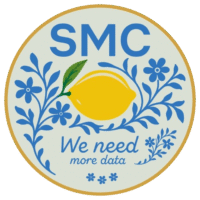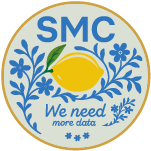
Beyond Band-Aids
A Justice-Centered Future for Philanthropy
Disruptions everywhere
For too long, traditional charity models have asked us to treat the symptoms of inequality while ignoring its root causes, putting band-aids on deep wounds. We see it when foundations fund food pantries but not living wage campaigns, or shelters but not housing justice – addressing symptoms while ignoring the causes. Charity provides immediate relief, yes – but it too often reinforces the very systems that create inequity in the first place.
This political landscape offers donors, collaborators, and allies a chance to rethink philanthropy’s role. Even as social safety nets erode and federal support wanes, donors are called to step in; yet, this disruptions exposes the structural failings of philanthropy as it stands – and invites bold change.
Charity will confront unprecedented public responsibilities left in the wake of absent or significantly reduced federal government support systems. How we meet this challenge will define our health, our strength and our collective future.
From charity to justice
It’s time for a shift from traditional charity to social justice philanthropy. Unlike traditional giving, which is often reactive and apolitical, social justice philanthropy is about more than generosity. It’s about power-sharing, redistribution and systemic change. It supports grassroots movements, funds frontline organizers and invests in long-term efforts to shift power. It doesn’t just patch holes in the system – it asks why the system leaks in the first place.
Currently, very little funding reflects this belief. The National Committee for Responsive Philanthropy found that only about 1% of foundation giving goes to grassroots organizing efforts. That’s a stark disconnect from where real change often begins.
The people most affected by injustice also continue to be routinely underfunded and excluded from decision-making tables. A report by the Philanthropic Initiative for Racial Equity found that less than 10% of foundation dollars go to racial equity work. Even less reaches grassroots organizations led by people of color – despite their proven impact in driving policy change and building resilient communities.
Why should we center the voices and leadership of affected communities? Because the people most affected by injustice often have the clearest vision for how to fix it. If funders want to be part of real transformation, they need to rethink their role. And this is just the time to do it.
Funders as partners
To support structural change and civic renewal, funders need to act more like partners, listeners, learners and risk-takers. This means rethinking traditional grantmaking practices. Rather than short-term, restricted project grants, funders should offer multi-year general operating support – the kind of flexible funding that allows organizations to build capacity, take risks and respond to their communities.
It also means recognizing that impact isn’t always immediate or easily measurable. Movements take time. And funders must be willing to let go of control, learn to value lived experience as much as formal credentials and fund at the speed of need. Movements don’t run on quarterly grant schedules. They need support when momentum builds.
How do we even start?
Not every funder will make this shift overnight. But every funder can take steps in the right direction. Start by building relationships with movement leaders. Listen without an agenda. Trust the expertise of those closest to the problem. Then fund their solutions – boldly, generously and without strings attached.
One powerful model for this work comes from the ‘Community Tool Box’ developed by the University of Kansas. It offers a free guide for community engagement, from assessing needs to building shared leadership and mobilizing for change. It invites those most impacted into the planning and decision-making process—not as token voices, but as co-creators.
What else can funders do differently right now?
- Listen deeply to community leaders, especially those in BIPOC-led grassroots groups.
- Invest in movement infrastructure – organizing, advocacy, leadership development.
- Invest in movement infrastructure – think five to ten years, not one or two.
- Share power by including community voices in strategy and decision-making.
- Be transparent about your foundation’s values, investments and limitations.
- Support capacity-building in ways defined by the grantee, not the funder.
The world doesn’t need more temporary fixes. It needs bold commitments to equity, dignity and justice. Philanthropy has an opportunity to be more than generous – it can be catalytic. The big question isn’t whether change is possible; it’s whether we have the courage to fund it.
References:
- Center for Community Health and Development. (n.d.). Community Tool Box. University of Kansas. Retrieved March 28, 2025, from https://ctb.ku.edu/en
- National Committee for Responsive Philanthropy. (n.d.). Donors and foundations are increasingly supporting movements. Retrieved March 28, 2025, from https://ncrp.org/resources/responsive-philanthropy-november-2020/donors-and-foundations-are-increasingly-supporting-movements/
About Us
At SMC, we partner with organizations on the frontlines of change. We’re not consultants who write reports and disappear—we’re embedded thought partners who bring strategy, storytelling, and infrastructure support when it matters most.



